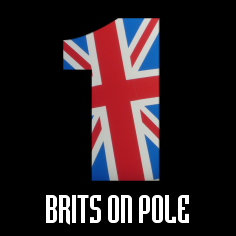Co-operation between all the teams on the F1 grid, whether front-runners or back-markers, privateers or manufacturer-backed, will be the only way to secure the support’s survival, according to Ron Dennis.
The long-standing McLaren team principal made his remarks as he prepared to hand over the job to his deputy, Martin Whitmarsh, and concentrate on the McLaren group of companies’ long-term business interests.
In a Q&A published on the team’s website as part of the MP4-24 launch, he said that the Formula One Teams Association, the first such organisation to enjoy the support of all entrants, was a crucial development in the battle to cut costs.
He also backed standardisation of engines and gearboxes in order to ease the pressure on smaller teams and said that no area of the sport’s operations should be immune to the need to make it more efficient.
And he concluded with a warning that any changes must be backed up by proper research rather than relying on “knee-jerk” or “intuition”.
Dennis said: “It is the teams who have embraced the issue of reducing costs. It is very challenging to reduce costs in F1 because it is a competitive sport, and therefore cost reduction has to be brought about without it having a specific detrimental affect on one team.
“It has to be something that can be policed across all teams. For example the testing ban is very easy to police. The aerodynamic changes the teams have agreed and introduced are more challenging to police, but still policeable.”
He said big savings had come from increasing the life of engines and gearboxes as well as by larger teams co-operating to suppport smaller ones.
“The cost of going motor racing, for example, Mercedes-Benz and McLaren, in respect of engines and gearboxes is well north, even with our reduced budgets, of €100 million, especially with KERS.
“A small team can now cover all those costs for €6.5 million, so you can see the manufacturers and the teams who have come to this particular point, have really focused on necessity to make F1 affordable in respect of competing.”
Dennis argues that it is important to draw a distinction between competing and being competitive: “If we can give them the same engines and gearboxes for €6.5 million, compared to the budgets that we have to have to develop and optimise those performances, then clearly it is the teams who have stepped forward and addressed the issue of assistance to the smaller teams. And that is just one example.
“It applies across the board, and each step FOTA takes is carefully considered and carefully documented, and then signed as a separate entity. We are accumulating a whole range of actions that will be properly documented and properly thought-through.
“Our next focus will be to look at the market research that has been conducted and financed by the teams, to really take a strong and hard look at how we make F1 better.
“The qualifying, the racing format — everything will be looked at, but it will be looked at on the basis of proper research, not an intuitive feel.”
He said that around 100 people from all 10 teams were currently involved in identifying costs, understanding them and trying to apply reductions.
“I understand that the FIA always wants to push for more, more, more – whatever it is. But we are in an environment where changes have to be considered and well thought-through.
“This isn’t an idea where you can just spontaneously come up with an idea and knee jerk into it.
“It has to be scientifically and commercially well considered, and that is what we have been doing. I have to say that various people who head up the groups have just been doing an extremely good job.”
